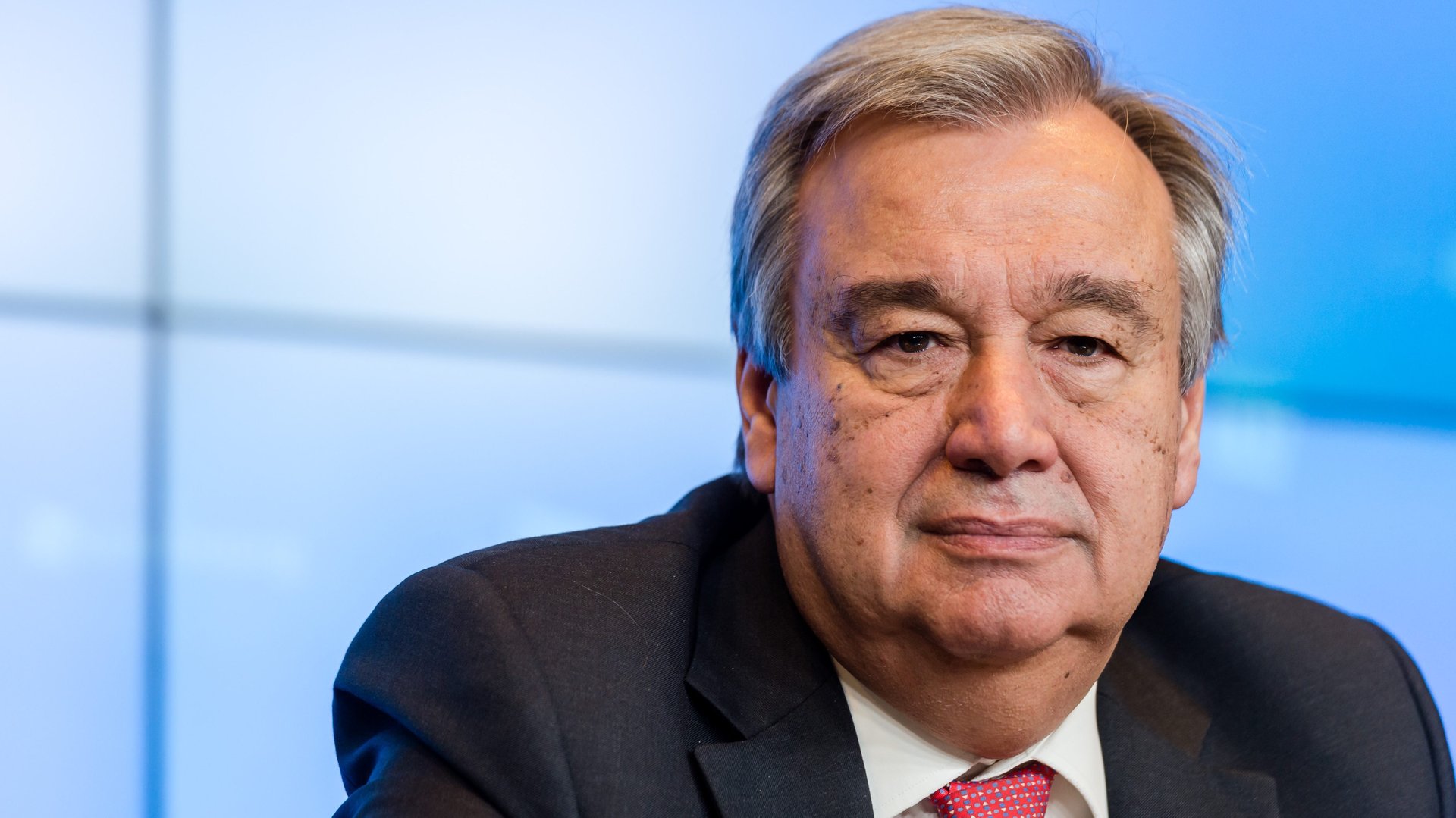The UN is going to tackle climate change with or without the US government
It’s telling that UN secretary general António Guterres’s address on climate change this week was held at New York University’s school of business, and not its college of arts and sciences. Guterres had a clear message and he wanted to deliver it to an audience more likely to care about a sound financial, rather than ecological, future: Climate change is real—and it’s bad for business.


It’s telling that UN secretary general António Guterres’s address on climate change this week was held at New York University’s school of business, and not its college of arts and sciences. Guterres had a clear message and he wanted to deliver it to an audience more likely to care about a sound financial, rather than ecological, future: Climate change is real—and it’s bad for business.
“Let me be blunt, the world is in a mess,” said Guterres, who noted that climate change is perhaps today’s greatest world challenge; not only does it pose tremendous direct threats to human existence, it also worsens existing global threats, like poverty and displacement.
“Climate change is undeniable. Climate action is unstoppable. And climate solutions provide opportunities that are unmatchable,” said Guterres. He argued that action against climate change is not just a moral imperative but also essential to future economic growth and even stability. “It is not just the right thing to do, it is the smart thing to do,” Guterres said. Renewable energy, for example, is key in lowering the global dependence on fossil fuels—but also in creating jobs all over the world.
“The message is simple: The sustainability train has left the station. Get on board or get left behind,” Guterres said. Though he did not address his message to anyone in particular, much of the UN secretary general’s talk seemed especially pertinent to US president Donald Trump’s promise to decide this week whether or not he will withdraw the country from the Paris agreement.
Even if he did not outright state that he was making an effort to sway Trump’s decision, Guterres seemed to be responding to the US president’s fixation on the importance of fossil-fuel industries as creators of jobs. “Some may seek to portray the response to climate change as a fundamental threat to the economy,” Guterres said. “Yet what we are witnessing in these early years of a systemic response is the opposite.” The secretary general noted that globally, energy production from solar power grew 50% from 2015 to 2016; and in China and the US—the world’s leading energy producers and consumers—”new renewable energy jobs now outstrip those created in the oil industries.”
After the address, Guterres was asked to address the possibility that the US may leave the Paris agreement this very week. ”It’s very simple, when you disagree with someone you try to convince them,” Guterres said. The UN, he added, is working to show the US how important it is—for both the country and the world—that it sticks to the commitments made in Paris. The secretary general warned that if the US withdrew from the agreement, and from other forms of UN financing and cooperation, it might end up heightening national security threats—as worsening climate conditions, he says, have been linked to displacement and higher risk of geopolitical conflict.
In addition, (though he never mentioned Trump directly), Guterres called on ”US society as a whole—for the cities, the states, the companies, the businesses—to remain engaged with the Paris agreement,” regardless of what the country’s federal government decides.